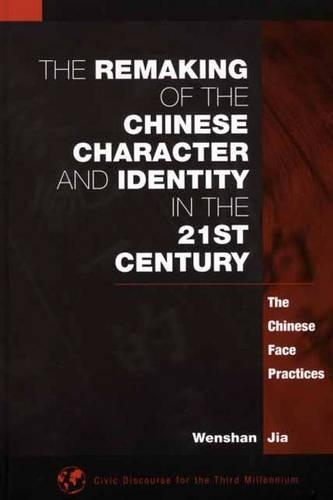
The Remaking of the Chinese Character and Identity in the 21st Century: The Chinese Face Practices
(Paperback)
Available Formats
Publishing Details
The Remaking of the Chinese Character and Identity in the 21st Century: The Chinese Face Practices
By (Author) Wenshan Jia
Bloomsbury Publishing PLC
Praeger Publishers Inc
30th September 2001
United States
Classifications
Tertiary Education
Non Fiction
Cultural studies
Semantics, discourse analysis, stylistics
302.2220951
Physical Properties
Paperback
216
Width 156mm, Height 235mm
312g
Description
Wenshan Jia demonstrates that a true liberation of Chinese civic discourse can start with a focus on indigenous cultural practices, such as face practices--the understanding that every human face offers a distinct cultural grammar for acting, speaking, and feeling. Chinese character and identity, the author argues, are primarily functions of communication, and as such, these practices are of enormous consequence to the necessary reconstruction of Chinese identity in the changing socioeconomic context of the 21st century. In this way, Jia finds a middle ground between the advocacy of complete Westernization and radical Chinese nationalism: as a pragmatic alternative, communication is key. Never before has facework research been approached so systematically from the standpoint of its relationship to character and identity. Jia's work substantially advances the literature on Chinese communication and presents a unique perspective on its relationship to social transformation. This new paradigm of facework--including analytical methods such as Circular Questioning in addition to major case studies--challenges traditional views while pointing the way toward a new and valuable social-constructionist view.
Reviews
"In an age of potential nuclear conflict, no greater need exists than for increased understanding and communication between East and West. In this multifaceted book, Dr. Wenshan Jia makes a major contribution toward meeting that need. I highly recommend the book for social scienctists interested in the influence of culture on thought and emotion; and, more generally, for anyone who expects to interact with Chinese in mutually constructive fashion."-Professor James R. Averill Department of Psychology University of Massachusetts
"It would be a unique valuable book for communication studies and sociological studies with reference to China. Its eight chapters are well balanced between theory and practice, between conceptual studies and case studies. It presents a constructionist model of Chinese face dynamics. I strongly recommend this interesting and significant work."-Chung-ying Cheng Professor of Philosophy Editor, Journal of Chinese Philosophy
"Professor Jia has written a bold and challenging work that offers new insights to an old concept deeply imbedded in Chinese culture. For him to propose to Chinese as well as Western readers a transformation of Chinese character and culture through civic discourse that emphasizes the rational-relational is a major undertaking that benefits us all as the East and the West engage in dialogue."-D. Ray Heisey Professor and Director Emeritus Series Editor, Advances in Communication and Culture, Ablex
"This book does things that no other in the social science literature does. It treats the Chinese concept of face with an historical, and cultural richness that is highly illuminating, and it connects the notion of face to the issue of democratic reform in China. It is a highly original work."-Vernon E. Cronen, Ph.D. Department of Communications University of Massachusetts
"This book supplies the missing link in scholar's work on the Chinese facework from a social science perspective. It's an outstanding effort of the author to provide reading in communication in the Chinese and intercultural context, with a special focus on the analysis of face and how does it relate to the transformation or reconstruction of Chinese culture. The social constructionist approach, moreover, affords many insights into the unterconnection between the effects of Chinese facework and intercultural understanding."-Guo-Ming Chen Founding President of the Association for Chinese Communication Studies
Author Bio
WENSHAN JIA is Assistant Professor of Communication, State University of New York at New Paltz, and was Research Chair of The Association of Chinese Communication Studies./e His research concentrations are intercultural communication, Chinese communication and social change, and communication theory.
